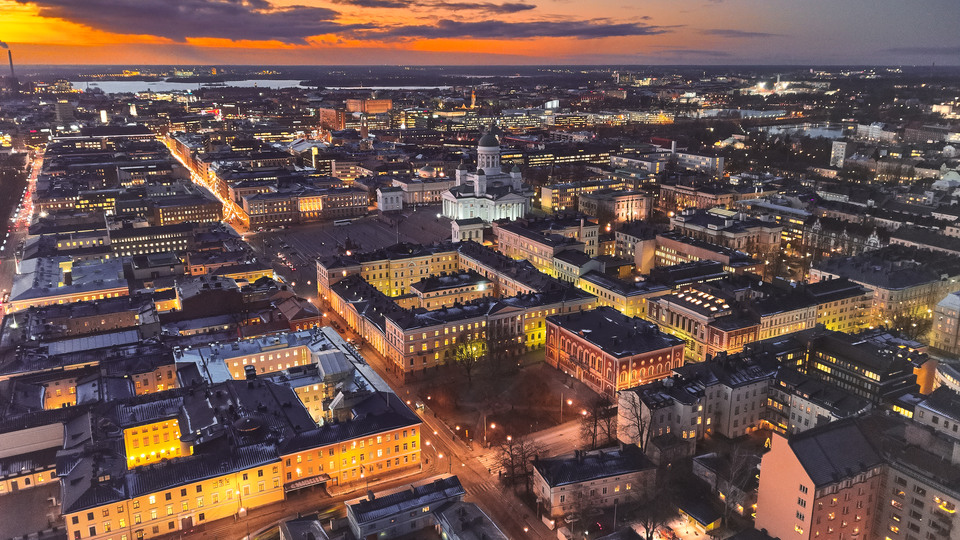
IVL finalist in Helsinki Energy Challenge
Out of 252 entries, IVL was one of ten finalists who advanced to the Helsinki Energy Challenge competition, which was decided yesterday. In the competition, the participants have had to work out solutions to change Helsinki's energy system to become carbon neutral. The basic idea of IVL's team CarbonHelsinki was to design a district heating system for Helsinki that is circular and that takes advantage of residual heat that is otherwise lost.
– Our solution builds on the district heating system that already exists in Helsinki, but to that we link more heat sources such as solar, air, water and other residual heat flows that exist in the city and are not used today, says Kristina Lygnerud at IVL, who has led the work.
The heat sources must be combined with the help of different storage solutions where borehole layers are charged in and out of the sun and residual heat, which enables the heat to come from the most efficient sources over the year.
– In addition to technical solutions, we have included business models for the district heating system, and developed a financing solution that shows how Helsinki's energy transition can be implemented in a way that both creates new knowledge about energy while providing jobs locally, says Kristina Lygnerud.
The group has developed a model of the energy system in Helsinki which they have worked on based on the boundary conditions set by the city of Helsinki and developed using the experience of district heating, residual heat recovery, boreholes and heat pumps in the team. In this way, they have been able to demonstrate the most cost-effective and environmentally beneficial solution for restructuring the energy system. According to the group's proposal, Helsinki will be completely carbon neutral in 2035.
– The key is to build a system that is very flexible and where you can utilize the capacity of different heat sources when they are most cost-effective to use, says Kristina Lygnerud.
The Helsinki Energy Challenge competition was organized by the City of Helsinki. Despite the fact that CarbonHelsinki was not the winner this time, Kristina Lygnerud sees many advantages in forming cross-functional teams in this way and together work out solutions that more cities can take part in.
– Building this type of system and solutions that reduce climate emissions is not only an opportunity for Helsinki, but for many other cities. I hope that we have shown how much can actually be done today by reusing the energy that is in the cities, says Kristina Lygnerud.
CarbonHelsinki's proposal was developed by a team consisting of IVL Swedish Environmental Research Institute, Metropolia University of Applied Sciences in Helsinki, Eléctricité de France from France, European Institute for Energy Research in Germany, Eksta Bostäder from Sweden, Resourceful futures from the UK, LKAB Wassara in Sweden, Ochsner Process Energy Systems from Austria and Eurac Research in Italy.
Download CarbonHelsinki's competition entry. External link, opens in new window.
External link, opens in new window.
Read more about the final and the winners here. External link, opens in new window.
External link, opens in new window.
For more information, please contact:
Kristina Lygnerud, kristina.lygnerud@ivl.se, +46 (0)10-788 69 27
